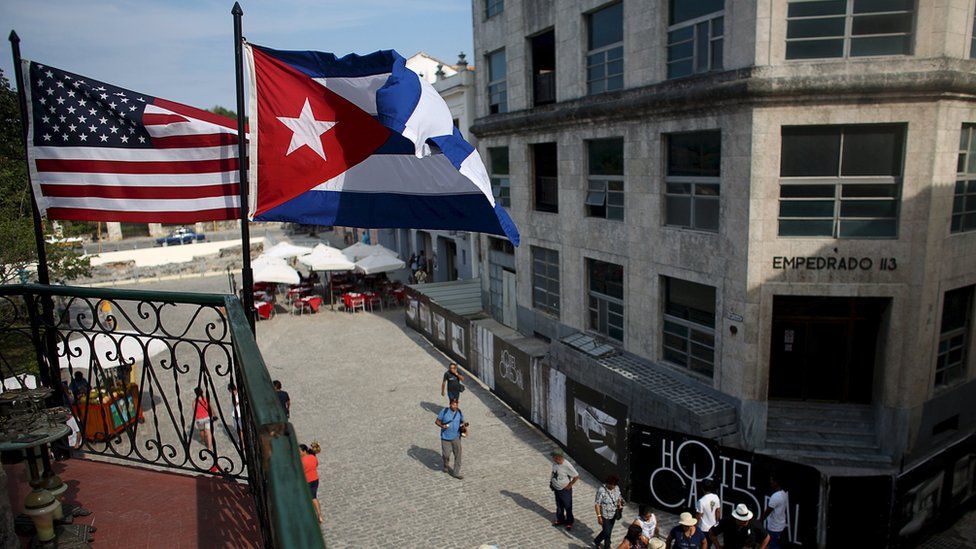What the US wanted - and got - from Cuba
- Published

US President Barack Obama and his aides went to Havana with high hopes. Here's a look at what US officials were striving for - and how they did.
It was the first visit to Cuba by a US president in almost 90 years - and that alone made Mr Obama's three-day trip to the island historic.
In his speech to the Cuban people, the president talked about coming to bury the last remnants of the Cold War in the Americas and a new era of friendship between the countries.
But the White House also wanted some deals on more tangible goals from this visit.
Cuba Inc
Business executives from Airbnb, a company that offers short-term rentals the digital payment company, PayPal, and other companies travelled to Cuba for President Obama's visit. They spoke with Cubans about their plans for the future.
And over the weekend executives from Starwood Hotels signed a deal with Cuba, the first one in decades for a hotel company.
Grade: A
Free speech
Dissidents were arrested over the weekend, and President Castro told Mr Obama that they didn't have political prisoners in Cuba. Those are bad signs for Mr Obama and human-rights advocates.
On the other hand Mr Obama got to meet with dissidents in Havana. And Mr Castro took questions from journalists at a press conference, a rare occurrence in a place where the media is controlled by the state.
Grade: B
America's most wanted
White House officials have tried for years to convince their counterparts in Havana to stop providing a haven for individuals wanted by US authorities.
Former Black Liberation Army leader, Joanne Chesimard, also known as Assata Shakur, who was convicted of killing a New Jersey state trooper, and other fugitives currently live here.
Administration officials said they spoke with Cubans again, saying that they wanted the US fugitives to be sent back.
But the US officials said they didn't make much progress this week - and would continue to try.
Grade: C
Better health
After the first case of the Zika virus was detected in Cuba this month, Obama administration officials stepped up their efforts to work with Cuban officials on combating the virus.
White House officials told me that they've made progress on this front, developing closer ties with Cuban health professionals.
Still Latin America experts in the US say there's still a lot of work to be done - and say that US officials will keep continue to try and develop partnerships on global health programmes with Cubans.
Grade: B
Dollars and cigars
Cuban government officials impose a 10% tax on US dollars exchanged for local currency, and US officials have been trying to convince them to remove the tax.
The Cubans are now on the verge of lifting the penalty - and may do this very soon.
The penalty doesn't affect what you can buy, though. US officials as well as lots of journalists who came to Havana with the president were able to buy Cuban cigars for themselves and their friends.
Grade: A